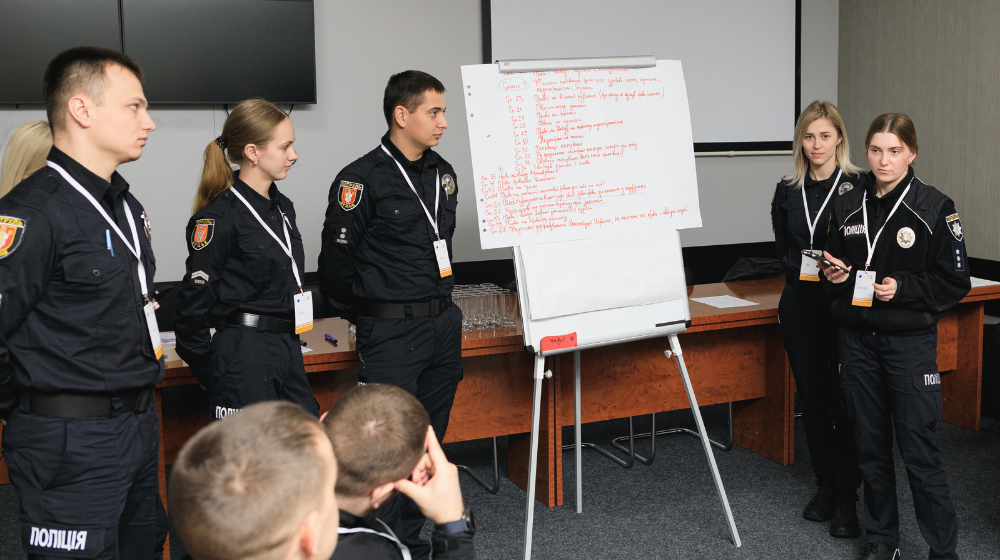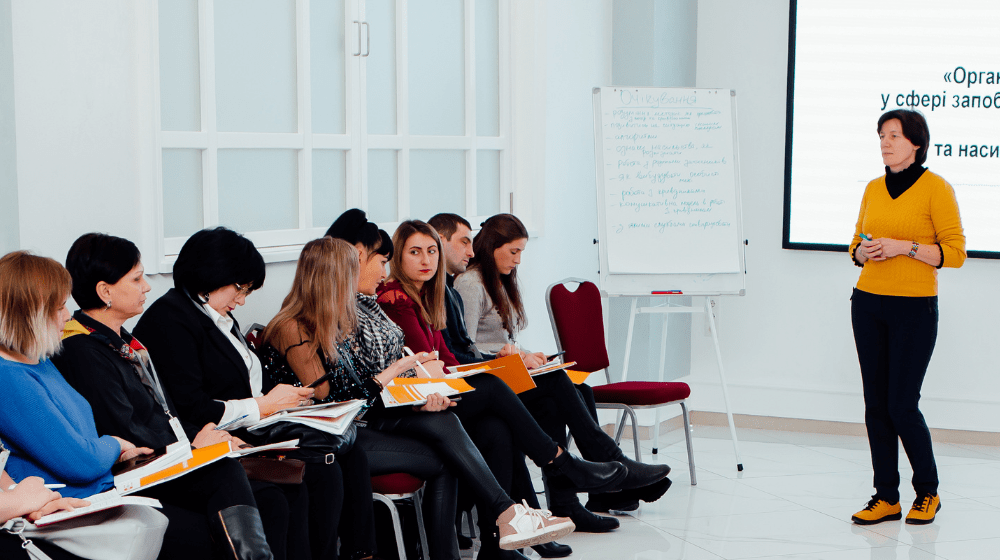UNFPA, with financial support from the Government of Finland, conducted 34 workshops on preventing and responding to gender-based violence for state service providers across 19 regions of Ukraine. The workshops took place in February, March and April 2023 and aimed to enhance the capacity of police workers, social workers, and psychologists in responding to GBV cases and providing assistance to survivors amid humanitarian crisis caused by war. Further elaborating on the context and urgent needs for these kinds of services in Ukraine, these workshops were organized in recognition of the pressing need to address the significant challenges, including effective response to gender-based and conflict-related sexual violence and new challenges in work with survivors, people in risk of violence and the most vulnerable groups.
A total of 989 state service providers from Kyiv, Lviv, Volyn, Zakarpattia, Ternopil, Rivne, Vinnytsia, Chernivtsi,Chernihiv, Cherkasy, Sumy, Zhytomyr, Khmelnytkkyi, Poltava, Mykolaiv, Kharkiv, Odesa, Kirovohrad and Dnipropetrovsk oblasts participated in the workshops, which covered a wide range of topics related to GBV, domestic violence, conflict-related sexual violence, and survivor rights. The training sessions were designed to provide practical guidance to participants on how to identify, respond to, and refer survivors to relevant services while emphasizing the importance of taking a survivor-centered approach in all interventions.

UNFPA and its partners remain committed to working together to prevent and respond to GBV cases in Ukraine. Through its ongoing programmes and initiatives, UNFPA is working with the Ukrainian Government, civil society organizations, and other stakeholders to promote gender equality, prevent violence against women and girls, and ensure the rights and dignity of survivors are protected.
Workshops on preventing and responding to gender-based violence, conducted by UNFPA with the financial support of the Government of Finland, were an important step towards strengthening the capacity of state service providers to respond to GBV cases and provide survivor-focused assistance. It is crucial to continue collaboration in order to develop and implement initiatives that support GVB prevention and response, as well as the provision of comprehensive services to survivors.



